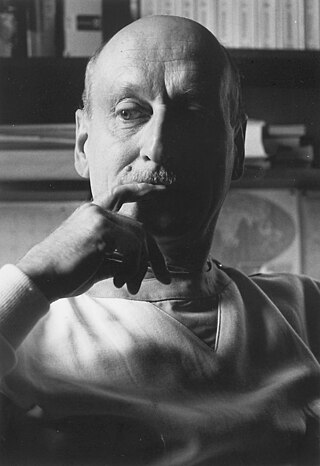Top Qs
Timeline
Chat
Perspective
Fernand Dorais
Canadian writer, Jesuit priest and academic From Wikipedia, the free encyclopedia
Remove ads
Fernand Dorais (March 8, 1928 – January 16, 2003) was a Canadian writer, Jesuit priest and academic.[1] A professor of French literature and translation at Laurentian University in Sudbury, Ontario from 1969 to 1993, he was noted for his work as a key builder of Franco-Ontarian cultural identity, through both his academic research and his role in the development of many of the Franco-Ontarian community's contemporary cultural institutions.[2]
Born in Saint-Jean-sur-Richelieu, Quebec, Dorais was educated at the Université de Montréal, Columbia University and the Sorbonne. He taught at Collège Sainte-Marie de Montréal and Collège Lionel-Groulx in Saint-Jérôme in the 1950s and 1960s before moving to Sudbury to join the faculty at Laurentian University.[3]
Remove ads
Career
Summarize
Perspective
At Laurentian, he became the first major academic at any Canadian university to advocate for the study of Franco-Ontarian literature as a subject in its own right, rather than as a minor footnote to Quebec literature.[3] He also served as a mentor to the Coopérative des artistes du Nouvel-Ontario, a group of Laurentian University art students who would go on to play a transformative role in Franco-Ontarian culture in the 1970s through creative projects such as the Théâtre du Nouvel-Ontario theatre company, the La Galerie du Nouvel-Ontario art gallery, the La Nuit sur l'étang music festival and the progressive rock band CANO.[4]
Dorais published several works of academic literature during his lifetime, including Entre Montréal… et Sudbury : pré-textes pour une francophonie ontarienne and Témoins d'errances en Ontario français : réflexions venues de l'amer.[3] He also published some fiction work, most notably Hermaphrodismes, a collection of two erotic novellas – one from each of a heterosexual and gay perspective – which he published under the pseudonym "Tristan Lafleur" as the first fiction title ever released by the Prise de parole publishing house.[5] The book caused a minor scandal, and was withdrawn from publication in 1978 after Dorais bought out all the remaining copies of the book and burned them.[1]
Following his retirement from Laurentian University in 1993, Dorais returned to Saint-Jérôme, Quebec, where he died in 2003.[2] Following his death, many of his published and unpublished writings were repackaged by Prise de parole as Le recueil de Dorais, a three-volume set.[1] The first book, Volume I – Les essais, collected his non-fiction writings; the second, Volume II – Trois contes d'androgynie, was a reissue of Hermaphrodismes along with a never before published third erotic fiction story; the third, Volume III – Mémoire d'un religieux québécois, 1928–1944, collected his autobiographical writings and included the first published acknowledgement that Dorais self-identified as a gay man.[6]
Remove ads
Works
- 1963: Mon babel
- 1970: Un temps des poètes a-temporel. À propos d'un livre de Gilles Marcotte: Le temps des poètes
- 1975: Hermaphrodismes (as Tristan Lafleur)
- 1984: Entre Montréal ...et Sudbury, Pré-textes pour une francophonie ontarienne
- 1990: Témoins d'errances en Ontario français : réflexions venues de l'amer
- 2011: Le recueil de Dorais, volume 1 – Les essais, textes réunis et présentés par Gaston Tremblay
- 2012: Le recueil de Dorais, volume 2 – Les trois contes d'androgynie
- 2016: Le recueil de Dorais, volume 3 – Mémoire d'un religieux québécois, 1928–1944
Remove ads
References
Wikiwand - on
Seamless Wikipedia browsing. On steroids.
Remove ads

